Wanna know what it's like to be a battlefield commander & have a bridge blow up in your area of operations?
Having had that experience, under different circumstances, it is not a good day in Moscow.
A "war story" 🧵 that will provide some insight into the Kerch attack. 1/
Having had that experience, under different circumstances, it is not a good day in Moscow.
A "war story" 🧵 that will provide some insight into the Kerch attack. 1/
In 2007, I assumed command of the storied @1stArmoredDiv. We would deploy to N. Iraq as "Task Force Iron," and become Multinational Division North, conducting operations in the 7 northern provinces.
Before going, we spent some time training...to include "staff training." 2/
Before going, we spent some time training...to include "staff training." 2/
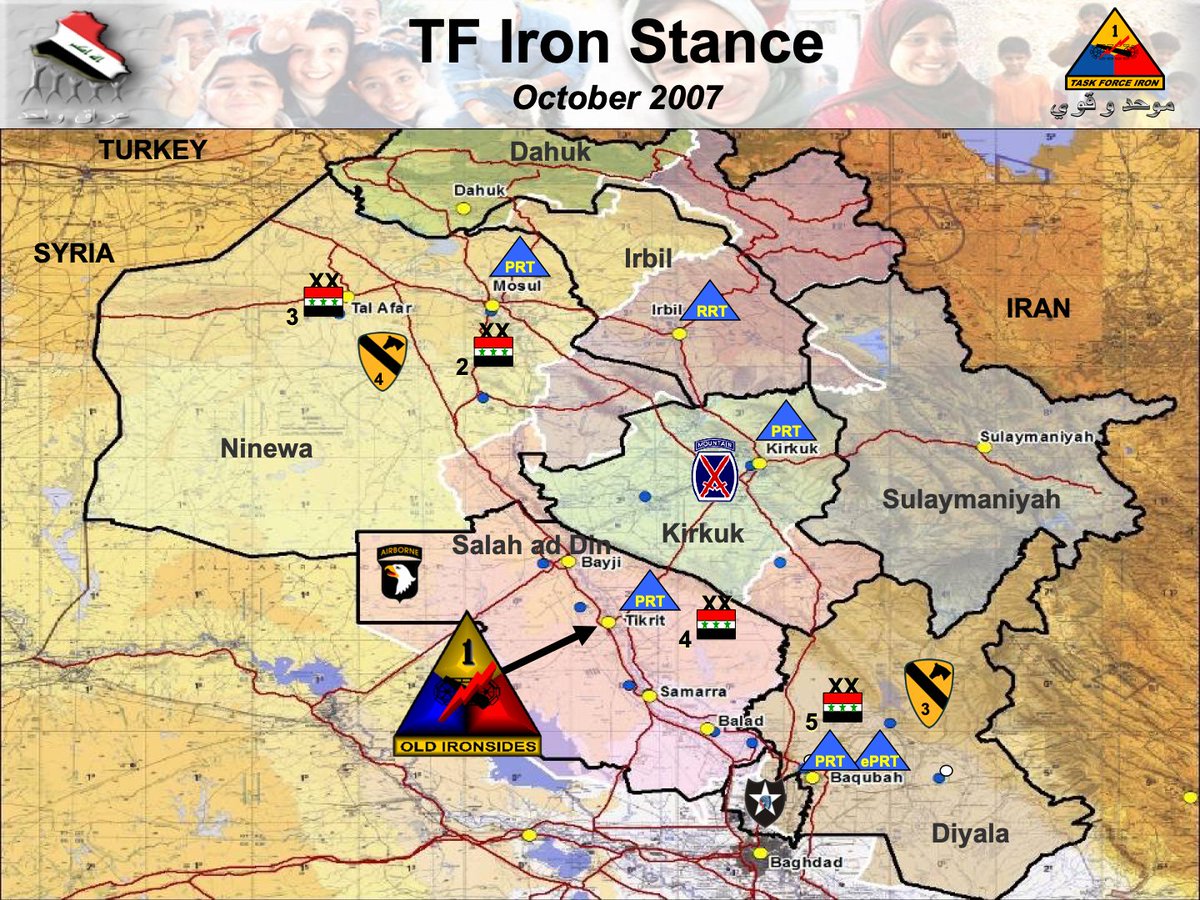
The Division conducted 'battle drills' exercises with our staff at the simulation center at Grafenwoehr, a state of the art facility in S. Germany. During a two week period we practiced everything we thought we might see in combat under the watchful eye of trainers. 3/ 
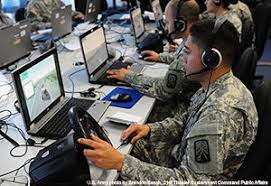
The last scenarios we addressed was a potential for Al Qaida in Iraq to blow one of the many bridges in our area of operations.
My Division Chief of Staff - who was a great engineer officer - included that scenario to test our reaction to unique challenges. It was prescient. 4/
My Division Chief of Staff - who was a great engineer officer - included that scenario to test our reaction to unique challenges. It was prescient. 4/
As an aside, I didn't think we would ever have to address that kind of attack.
But we'd never have to do that, I thought.
But at least it was a good drill to integrate our operations & intelligence sections while developing our planning & reaction, I thought.
Was I wrong. 5/
But we'd never have to do that, I thought.
But at least it was a good drill to integrate our operations & intelligence sections while developing our planning & reaction, I thought.
Was I wrong. 5/
After the trainning, the HQs deployed to Tikrit in late September & began operations with our 30,000 US forces & 5 Iraqi Army Divisions.
Our mission was to conduct counter-insurgency, train the emerging Iraqi Army, contribute to the economic & political stability of N. Iraq. 6/
Our mission was to conduct counter-insurgency, train the emerging Iraqi Army, contribute to the economic & political stability of N. Iraq. 6/
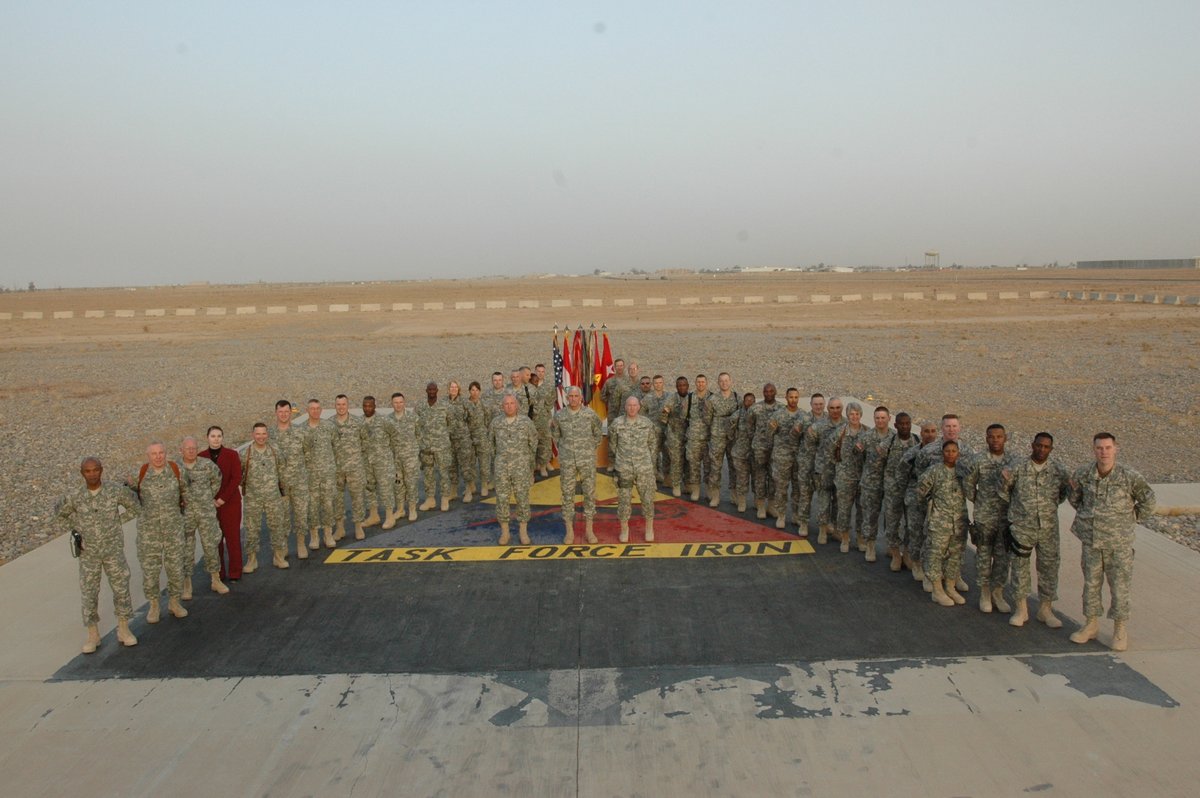
To my surprise, 2 months into our mission (in early November), AQI used a suicide truck bomb to blow a segment of the Qayyarah Bridge over the Tigris River. 7/ 
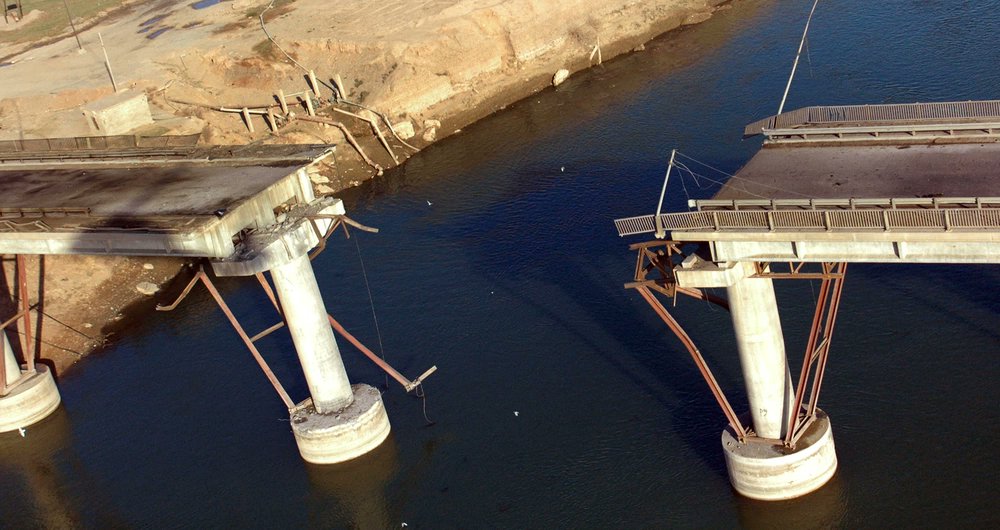
AQI had targeting this bridge because:
1. It was the sole east-west transport route on the upper Tigris, near Mosul
2. Blowing it disrupted transportation a& thus economics (especially for local farmers)
3. The attack would embarrass us, as it was near our base at Q-West 8/
1. It was the sole east-west transport route on the upper Tigris, near Mosul
2. Blowing it disrupted transportation a& thus economics (especially for local farmers)
3. The attack would embarrass us, as it was near our base at Q-West 8/
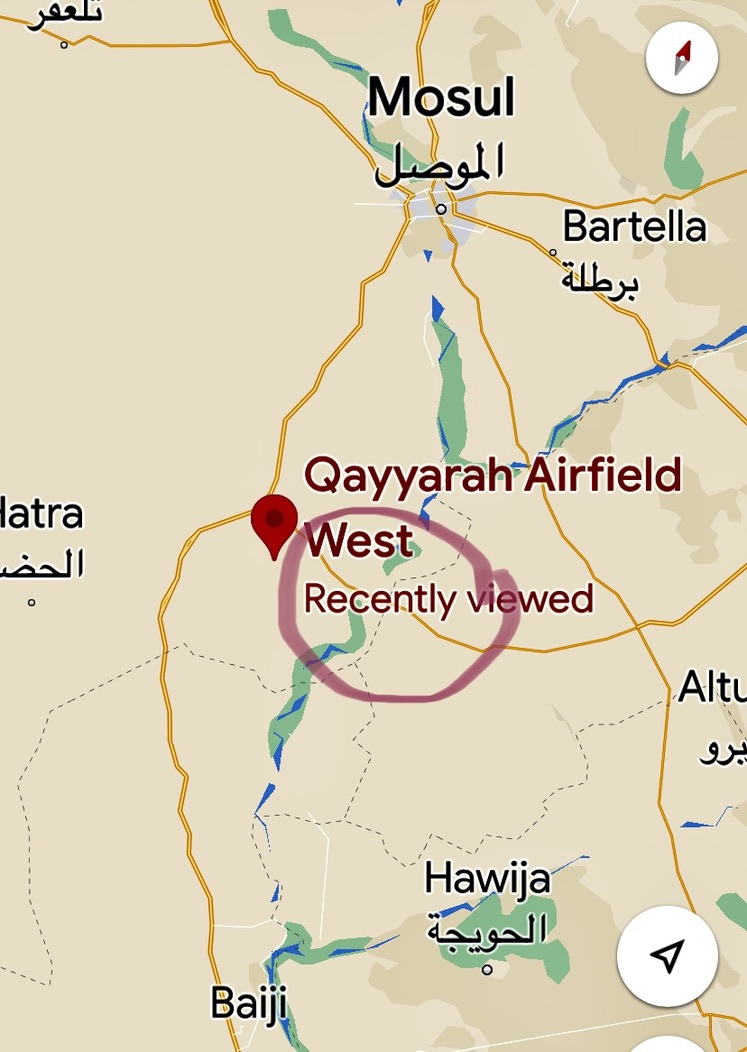
AQI had executed a tactical target that had significant operational implications.
We had to react very quickly to counter the damage...and to counter the enemy's messaging.
The procedures we developed in training allowed us to act quickly. 9/
dvidshub.net/news/14194/tig…
We had to react very quickly to counter the damage...and to counter the enemy's messaging.
The procedures we developed in training allowed us to act quickly. 9/
dvidshub.net/news/14194/tig…
Within 3 days, engineers had secured the bridge & rebuilt a span. This is the initial picture, and it was harder than it looks.
While doing that, our intel teams focused on "reflections" of enemy activity in the area & found several cells of AQI. 10/
While doing that, our intel teams focused on "reflections" of enemy activity in the area & found several cells of AQI. 10/
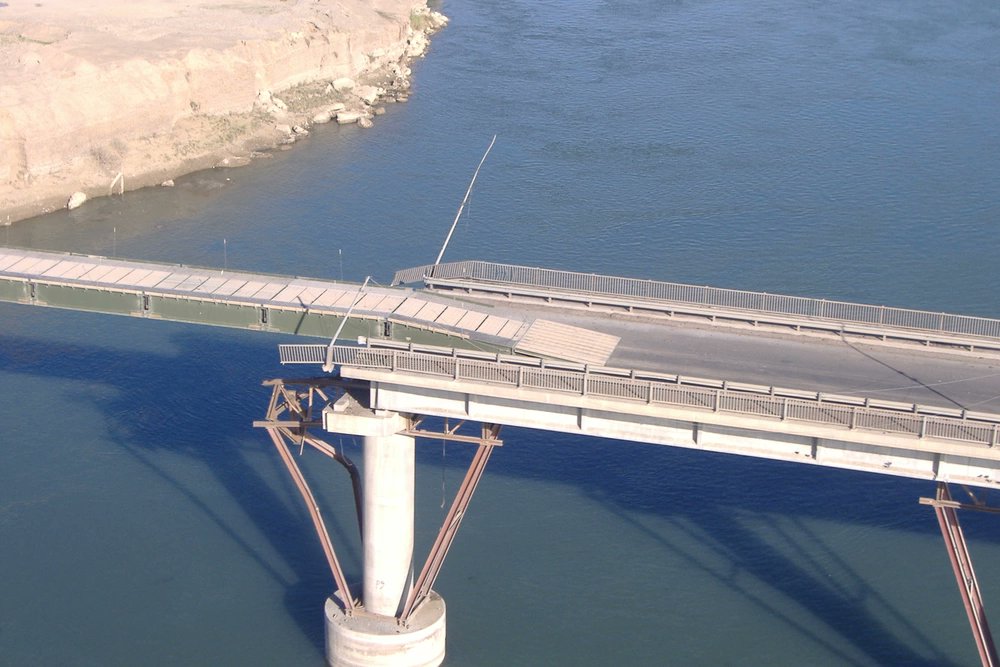
Our preparations in training contributed to success in this battle drill.
As I said, this was a tactical target that had operational repercussions.
Bridges are extremely important for military logistics & civilian travel. 11/
As I said, this was a tactical target that had operational repercussions.
Bridges are extremely important for military logistics & civilian travel. 11/
Which brings us to the attack on the Kerch Straight Bridge.
Unlike our situation in Iraq, this morning's attack was an operational target with strategic implications.
Qayyarah was a local bridge.
Kerch is a critical node for RU's logistics support of forces in Crimea. 12/
Unlike our situation in Iraq, this morning's attack was an operational target with strategic implications.
Qayyarah was a local bridge.
Kerch is a critical node for RU's logistics support of forces in Crimea. 12/
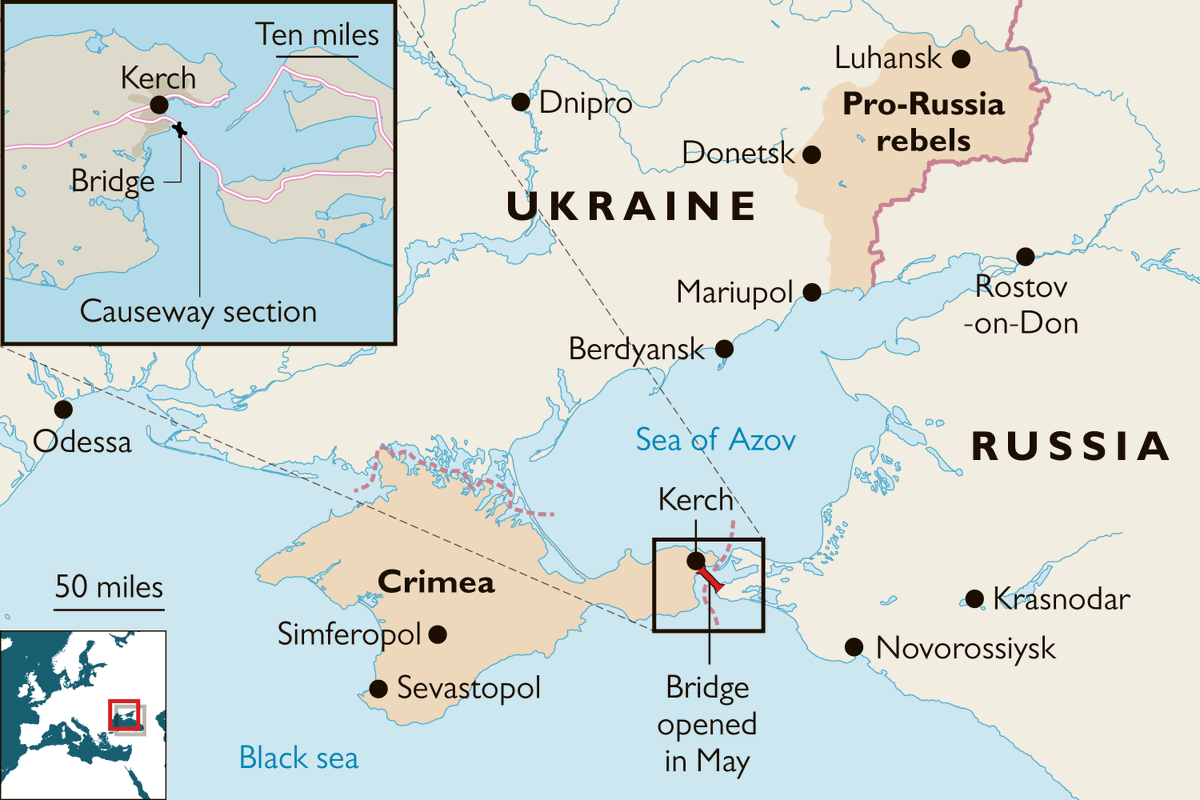
The targeting of Qayyarah by AQI barely generated a blip in Baghdad.
The Kerch attack is resonating in Crimea & Moscow, throughout Russia, and across the globe.
Doing it the day after Putin's 70th birthday only adds to the sting. 13/
The Kerch attack is resonating in Crimea & Moscow, throughout Russia, and across the globe.
Doing it the day after Putin's 70th birthday only adds to the sting. 13/
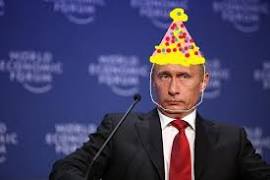
Putin drove a truck across the newly constructed Bridge in 2018 & declared Crimea was Russian "holy land."
The targeting & the related messaging of of this attack will drive further protests against the war in Russia...and in the Autonomous Region of Crimea. 14/

The targeting & the related messaging of of this attack will drive further protests against the war in Russia...and in the Autonomous Region of Crimea. 14/

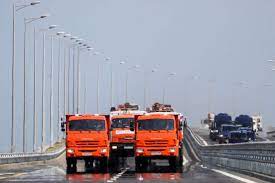
W/ the Q bridge, @1stArmoredDiv "messaged" our competence to local audiences & our ability to quickly react to AQ. It worked.
UKR has already brilliantly "messaged" this strike to the world is a more decisive & immediate manner.
UKR has already brilliantly "messaged" this strike to the world is a more decisive & immediate manner.
https://twitter.com/nexta_tv/status/1578665161246011392?s=20&t=DDDlvyrHT0OqFw2OVfBI8g14/
In Iraq, our terrific military engineers were able to quickly repair the Q Bridge.
Due to the location, the scope of the damage on both rail and road sections, & the incompetence of RU military, I don't see repairs being possible on the Kerch Bridge any time soon. 15/
Due to the location, the scope of the damage on both rail and road sections, & the incompetence of RU military, I don't see repairs being possible on the Kerch Bridge any time soon. 15/
This operational strike will affect future strategies of Russia and Ukraine.
As the saying goes: "forget logistics, you will lose."
RU is constantly being reminded of that & they now have fewer opportunities to adapt.
Watch the south & Putin's reaction to this strike. 16/16
As the saying goes: "forget logistics, you will lose."
RU is constantly being reminded of that & they now have fewer opportunities to adapt.
Watch the south & Putin's reaction to this strike. 16/16
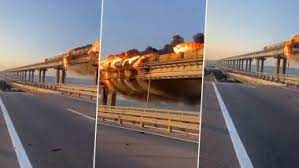
• • •
Missing some Tweet in this thread? You can try to
force a refresh















